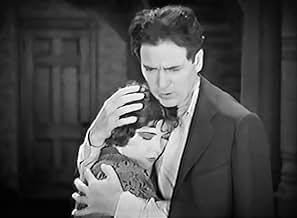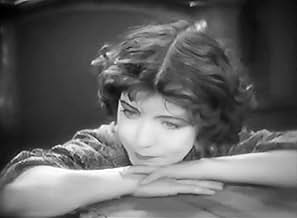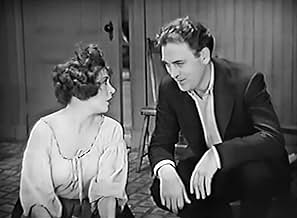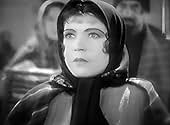A WWI vet takes on the KKK when he loses his wife to a womanizing Klansman.A WWI vet takes on the KKK when he loses his wife to a womanizing Klansman.A WWI vet takes on the KKK when he loses his wife to a womanizing Klansman.
- Director
- Writers
- Stars
- Awards
- 4 wins total
Symona Boniface
- Woman at Welcome-Home Party
- (uncredited)
Delmer Daves
- Undetermined Role
- (uncredited)
Christian J. Frank
- Wife Beater
- (uncredited)
Herman J. Mankiewicz
- Newspaperman
- (uncredited)
Broderick O'Farrell
- Poker Player on Train
- (uncredited)
Will Walling
- Uncle Billy - Townsman
- (uncredited)
- Director
- Writers
- All cast & crew
- Production, box office & more at IMDbPro
Featured reviews
This movie is a unique glimpse into the culture of the period. One outstanding item is the depiction of a clan-type organization who acts more as a community secret police (seriously flawed in their self-righteous and heavy handed rule) in general than as a specifically racist group. I had always heard about this being their main historic role because in many parts of the country where these groups existed, there were simply not sufficient numbers of minorities around to pick on and by their nature these groups had to pick on someone.
The film's treatment of sexuality seems far more erotic just in the suggestion of nudity and intimate touching than today's practice of "anything goes" sexual contact and the full nudity of multi-millionaire, artificially enhanced actors. I know old-timers and conservatives have been saying this for years but seeing this movie proves the point.
I was so interested in the acting that I really didn't care about the plot. Also, the film is so well restored that it is almost in 3-D.
The film's treatment of sexuality seems far more erotic just in the suggestion of nudity and intimate touching than today's practice of "anything goes" sexual contact and the full nudity of multi-millionaire, artificially enhanced actors. I know old-timers and conservatives have been saying this for years but seeing this movie proves the point.
I was so interested in the acting that I really didn't care about the plot. Also, the film is so well restored that it is almost in 3-D.
Leslie Hatten (Thomas Meighan) goes away to fight WW1. He secretly marries beautiful Rose (Evelyn Brent). He returns 2 years later to find their marriage annulled and she's married to Lon (Alan Roscoe). She still wants to sleep with Leslie but he refuses her. However Lon thinks she IS sleeping with him and is a member of The Order--a Ku Klux Klan-like organization who punish everyone they think isn't "moral" enough.
There's more but that's the gist. Fast-moving, pretty racy (Brent flashes some nudity), well-acted and directed drama. It brings up multiple themes--WW1, marriage, adultery, suicide, murder, secret organizations punishing people--and mixes them all up and throws them at the viewer in an entertaining way. This doesn't seem to be making any sort of statement (although it does strongly suggest that The Order is wrong) but just gives the viewer a fast-paced entertaining drama. This was thought to be lost for many years but was discovered and lovingly restored. We should all be happy for that. I give it a 7.
There's more but that's the gist. Fast-moving, pretty racy (Brent flashes some nudity), well-acted and directed drama. It brings up multiple themes--WW1, marriage, adultery, suicide, murder, secret organizations punishing people--and mixes them all up and throws them at the viewer in an entertaining way. This doesn't seem to be making any sort of statement (although it does strongly suggest that The Order is wrong) but just gives the viewer a fast-paced entertaining drama. This was thought to be lost for many years but was discovered and lovingly restored. We should all be happy for that. I give it a 7.
A soldier (Thomas Meighan) returns from the war to find that his secret marriage has been annulled and his sweetheart has re-married. That doesn't stop the ex-wife (Evelyn Brent) from directing her attentions toward him while her current husband sees other women. But these associations with a married woman get the soldier in trouble with the local Ku Klux-type Order.
THE MATING CALL (1928) really is a solid silent film. I watched it on a whim and was pleasantly surprised. TCM host Robert Osborne assured viewers that James Cruze was a top-tier director of the silent era, and his direction here is solid. This is one of the rare Howard Hughes- produced silent films that had been considered lost before turning up in Hughes's private collection in recent years. The restoration looks great, the photography crisp and clear.
The lovely Evelyn Brent is terrific as the town belle turned vamp. What a screen presence! I recall seeing her with William Powell in HIGH PRESSURE (1932), but she really makes an impression with this sexy, seductive performance. She has a real charisma on screen. There's also a great scene where a bitter Meighan, unmoved by her advances, forcibly removes Brent from his home as she battles back.
Renée Adorée is very cute as an immigrant girl and reluctant bride. Her sweet and innocent character is in stark contrast to Brent's character and gives the film a love story. There's a scandalous skinny dipping scene, but the distant nudity is innocuous enough.
The masked Order pose a dangerous threat and add a darker drama to the tangled web of small-town romance. The performances and the underlying darkness (including an eerie riverside discovery) raise this movie above other, more soapy melodramas and make THE MATING CALL one to check out.
THE MATING CALL (1928) really is a solid silent film. I watched it on a whim and was pleasantly surprised. TCM host Robert Osborne assured viewers that James Cruze was a top-tier director of the silent era, and his direction here is solid. This is one of the rare Howard Hughes- produced silent films that had been considered lost before turning up in Hughes's private collection in recent years. The restoration looks great, the photography crisp and clear.
The lovely Evelyn Brent is terrific as the town belle turned vamp. What a screen presence! I recall seeing her with William Powell in HIGH PRESSURE (1932), but she really makes an impression with this sexy, seductive performance. She has a real charisma on screen. There's also a great scene where a bitter Meighan, unmoved by her advances, forcibly removes Brent from his home as she battles back.
Renée Adorée is very cute as an immigrant girl and reluctant bride. Her sweet and innocent character is in stark contrast to Brent's character and gives the film a love story. There's a scandalous skinny dipping scene, but the distant nudity is innocuous enough.
The masked Order pose a dangerous threat and add a darker drama to the tangled web of small-town romance. The performances and the underlying darkness (including an eerie riverside discovery) raise this movie above other, more soapy melodramas and make THE MATING CALL one to check out.
What a bizarre and fascinating movie, with quite a bit to think about. I won't bother with the plot, except to say it's melodramatic and has some interesting (and pretty unique) turns in its short 72 minute run time. The things which stood out:
These three things were intriguing to me because they each created conflicting feelings. There are no black/white, purely good or bad aspects, certainly by today's standards. I was surprised over what I was seeing and it took time to process it, both in the context of the period as well as how it affected me. The film is not a masterpiece by any means, but these are the kinds of things which fascinate me about old movies.
- The KKK reference. It seems to me a critique of organized thugs who operate outside the law, or in this case, essentially are the law, while at the same time, not wanting to be direct about the racism of the real-life Klan. "The Order" in this film is a large group of armed townsfolk who don hoods and robes at night, then burst into homes and haul people off to answer for behavior they deem unacceptable (with one stated goal being to "safeguard the honor of our womenfolk"). Without any real form of trial where one is presumed innocent, allowed to prepare a defense, etc, victims answer questions put to them by the hooded leader. With a bonfire blazing away in the background, if he deems they're guilty, they're strapped to a giant cross and whipped. It doesn't have the racist persecution of real Klan behavior and is therefore far from an ideal depiction, but it's still a scary vision of the degradation of justice in America, and mob rule. They might seem to dispense justice in a couple of cases, but do they really? We have no idea, there is no trial, and the punishment is cruel and unusual. Aside from flogging people, they operate on hearsay, get things wrong, plant evidence, and arbitrarily decide a murder is OK. I think the critique is consistent with the increased criticism of the Klan in the mid to late 1920's, and its associated decrease in power.
- The sex. Producer Howard Hughes apparently wanted to push boundaries, and he and director James Cruze certainly did. Evelyn Brent is quite steamy as she attempts to seduce Thomas Meighan in a couple of scenes. In one she feigns an accident and pours a tub of water over her dress so that she has to change in his bedroom. In another she stands behind him, cheek pressed into his back, and fondling his hand in what seems like a reference to his manhood. Her eyes are so beguiling and she has just one thing on her mind for most of her time on the screen. Later Renée Adorée takes a nude swim, and then pads around in a wet, clinging nightgown. Helen Foster plays a beautiful young girl who is having an affair with a married man (Alan Roscoe), one of many for him, and what sets his wife (Brent) out to "follow his example." The film objectifies women and puts them into the usual buckets (temptress, virtuous, ruined), but it also points out the double standard.
- The transactional view of marriage. When Meighan's character wants to get married ASAP he simply goes out to Ellis Island and makes a bargain with an immigrant family, who won't be let into America otherwise. (This is where Adorée comes in). He simply states that he needs a wife to help work on his farm, and after some heated sidebar discussion, they young woman and her parents agree. The two know nothing about each other. The power imbalance and the idea of essentially a mail-order bride is disturbing to me, but they don't seem upset by it, and it just seems like a business transaction to them. Is it horrifying, or is a part of this more honest than many marriages? Is it a reflection of the times despite being a plot artifice, because of its practicality and the speed with which they get married (just as he was quickly married to Brent's character earlier)? Maybe all of the above. Regardless, she presents herself to him that night, knowing that's part of her 'obligations' (he demurs), makes a big breakfast for him the next morning, and soon we see her on all fours scrubbing the floor. The relationship grows to include some tenderness and signs of affection, including an amusing scene where Adorée pretty expertly scrubs down a pig and he joins her (why the pig needs to be washed, we have no idea). It seems a positive view of what is a strange marriage.
These three things were intriguing to me because they each created conflicting feelings. There are no black/white, purely good or bad aspects, certainly by today's standards. I was surprised over what I was seeing and it took time to process it, both in the context of the period as well as how it affected me. The film is not a masterpiece by any means, but these are the kinds of things which fascinate me about old movies.
Did you know
- TriviaLong thought to be lost, a print was discovered in the Howard Hughes collection at the University of Nevada, Las Vegas.
- GoofsAlthough the story takes place immediately after World War I (1918-1919), all of Evelyn Brent's and Helen Foster's clothes are strictly in the 1928 short skirt mode, completely out of place in the time frame of the story.
- Quotes
Poker Player: Major Hatten seems to be suffering from shell shock.
Hatten's Best Man: Worse than that! He's in love - with his own wife.
- Alternate versionsIn 2004, the University of Nevada Las Vegas and Flicker Alley, LLC copyrighted a digitally restored version with a new orchestral score composed, arranged and conducted by Robert Israel. It was produced by Jeffery Masino and runs 72 minutes.
- ConnectionsReferences The Sky Rider (1928)
Details
- Release date
- Country of origin
- Languages
- Also known as
- The Mating Call
- Filming locations
- General Service Studios - 1040 N. Las Palmas, Hollywood, Los Angeles, California, USA(studio - known as Metropolitan Studios at the time)
- Production company
- See more company credits at IMDbPro
Box office
- Budget
- $400,000 (estimated)
- Runtime1 hour 12 minutes
- Color
- Sound mix
- Aspect ratio
- 1.33 : 1
Contribute to this page
Suggest an edit or add missing content



































